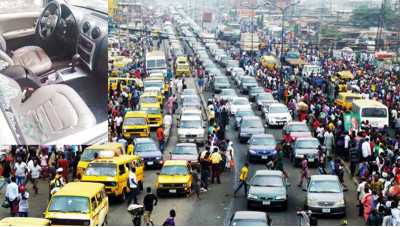
Being a cosmopolitan city, access to a highly organized public transportation system remains one of the major challenges of Lagos residents. As it is with similar cities such as New York, New Delhi and Jakarta, population growth in Lagos compounds the challenge of public transportation. With a population in excess of 22 million people while also attracting 65 per cent of Nigeria’s commercial activities, Lagos, no doubt, has a peculiar public transportation challenge. The ubiquitous Lagos traffic, complicated by the legendary Lagosians’ knack for impatience in addition to motorists’ impunity, make commuting in Lagos a very tricky experience.
Sadly, traffic gridlock has severe consequences such as economic losses arising from delays, weakened productivity, wasted energy, environmental deprivation and a diminished standard of living. Other effects are failed appointments, increased fuel expenses, decreased productivity and diverse health challenges. This, no doubt, poses great threat to socio-economic development in the state.
A variety of strategies have been deployed by subsequent administrations in the State to deal with the perennial Lagos gridlock. In the past 20 years, the State government has expanded and rehabilitated major roads across the State. In same vein, the Bus Rapid Transit scheme, BRT, a mass transit initiative, was developed to advance and enhance public transportation. Similarly, the Lagos State Traffic Management Authority, LASTMA, was created for efficient management of traffic.
Efforts were also made to improve water transportation while the first light rail project to be undergone by a State government in sub-Sahara Africa was initiated. Also, the first traffic radio station in the country, Lagos Traffic Radio, solely established to give traffic news to commuters, came on board in May, 2012. Equally, the Lagos Drivers’ Institute was set up in June, 2008 to improve and moderate the driving attitude of motorists in the State.
However, in-spite of these genuine interventions, recent experience has shown that much still need to be done to effectively be on top of traffic situation in the State. It is, from this perspective that the current administration of Mr. Babajide Sanwo-Olu is embarking on numerous reforms towards easing traffic gridlock in the state.
To begin with, THEMES, an acronym for Traffic Management and Transportation, Health and the Environment, Education and Technology, “Making Lagos a 21st Century Economy”, Entertainment and Tourism as well as Security and Governance was conceived by the administration as a Pillar of Development (POD).
Part of the administration’s THEMES agenda is a comprehensive programme is to integrate road, rail and water transportation to solve the pressing problem of commuting within the metropolis. There are ongoing efforts to complete existing road projects, fix all bad roads and expand the road infrastructure to improve economic and social activities. Plans are also on to improve navigation on the State’s waterways to facilitate water transportation and promote private investment.
Presently, the state government has identified about 60 traffic gridlocks in the state and it is working round the clock to ensure that gridlock red spots such as Third Mainland Bridge and Lekki-Ikoyi/Admiralty Way and Lekki Toll Plaza, among others would be urgently tackled and resolved. Also, in one his earliest official tasks, Governor Sanwo-Olu signed his first Executive Order to address the issue of traffic control and management, fixing of potholes on the roads, sanitation as well as cleaning of drainages in the State.
The Governor, who signed the Executive Order in the presence of Security Chiefs and the Heads of relevant agencies in the State, stressed that the support and cooperation of military personnel cannot be overemphasized especially in the implementation of the Order.Governor Sanwo-Olu also charged the Lagos State Traffic Management Authority, LASTMA, to effectively carry out their functions by ensuring strict compliance with all extant traffic rules and regulations as prescribed in the enabling law, adding that other pronouncements would be made soon to address other issues relating to gridlock on Lagos roads.
Sanwo-Olu equally directed the Vehicle Inspection Service (VIS) to be more communicative and advisory on issues of bad vehicle wipers, spare tyres and non-provision of jacks in vehicles, among others.Similarly, in another development, Governor Sanwo-Olu announced 100% increase in the allowances of LASTMA officials. The aim of this gesture is to encourage and motivate the workers in the performance of their duties and also in fulfillment of his vision to make traffic management and transportation a number one priority in his administration.
Governor Sanwo-Olu who made this announcement at an interactive session with staff of the Agency warned them to desist from any act of corruption or corrupt tendencies. The Governor equally announced free treatment for every LASTM official in the state. He also promised a more conducive working environment for the staff such as repair of damaged vehicles and motorbikes, provision of raincoats among others.
The rapid transformation of Lagos metropolis in recent years has caught global attention, as two renowned international bodies, Citigroup and Urban Land Institute, ranked the metropolis as one of two most innovative cities in Africa. The other city is Cape Town in South Africa. Citigroup and Urban Land Institute, which assess cities worldwide in terms of sustainability and livability, once ranked Lagos and Cape Town the most innovative cities in Africa in the list of the world’s 25 most innovative cities.
Lagos with this kind of posture in the global pedestal cannot and would not afford to soil her reputation by allowing needless traffic gridlocks become a nuisance to become the order of the day in the metropolis. This is why all stakeholders must join hands with the State government to ensure that ongoing reforms and efforts at tackling gridlocks in the state achieve set goals.
Ogunbiyi wrote from Ministry of Information & Strategy, Alausa, Ikeja, Lagos.
END

Be the first to comment